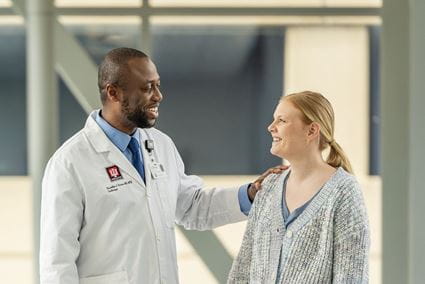 The Krannert Cardiovascular Research Center at Indiana University School of Medicine offers patients with cardiovascular disease an opportunity to participate in clinical trials.
The Krannert Cardiovascular Research Center at Indiana University School of Medicine offers patients with cardiovascular disease an opportunity to participate in clinical trials.
Through clinical trials, faculty try to better understand ischemic heart disease, heart failure, arrhythmia, cardiooncology, cardiopulmonary research and lipid disorders in cardiovascular disease. We search for solutions to slow disease progression and improve outcomes and quality of life.
We are committed to understanding, preventing and treating cardiovascular diseases and improving cardiovascular health here in Indiana and worldwide.
Our clinical trials evaluate the safety and effectiveness of a potential drug or medical device to advance medical care and improve patient outcomes.
See the following six cardiovascular subspecialties for more information. Participating in a clinical trial provides both a patient access to new therapies as they are evaluated while providing more knowledge to specialists interested in improving cardiovascular outcomes for their patients.
 An advantage of specialty cardiovascular care at an academic health center is access to clinical trials, which could provide lifesaving or life-changing alternatives to regular medical treatments. These clinical trials may be available to you at an affiliated clinic or a partnering site that may be closer to home.
An advantage of specialty cardiovascular care at an academic health center is access to clinical trials, which could provide lifesaving or life-changing alternatives to regular medical treatments. These clinical trials may be available to you at an affiliated clinic or a partnering site that may be closer to home.






